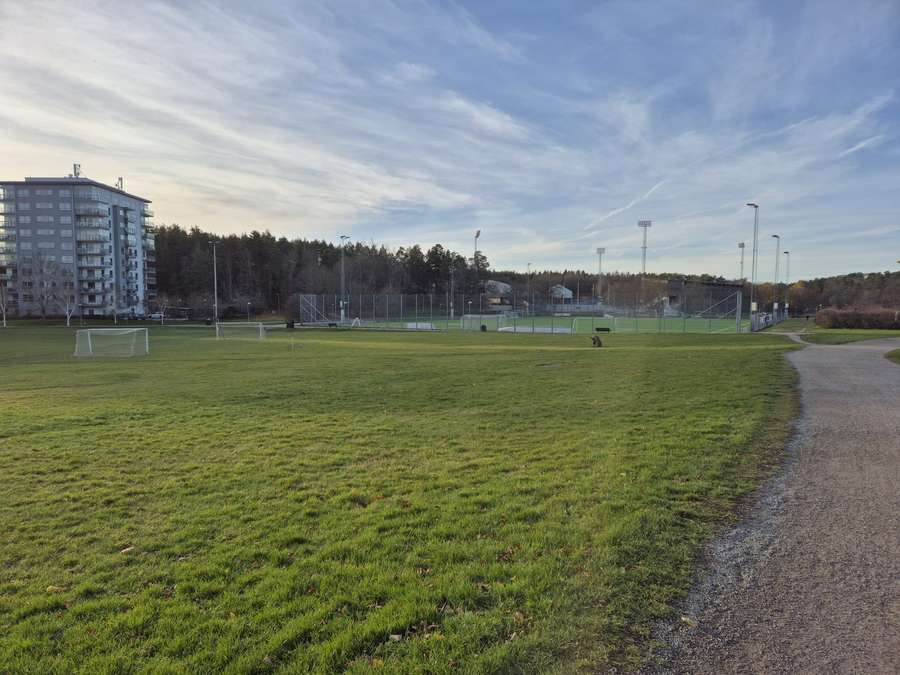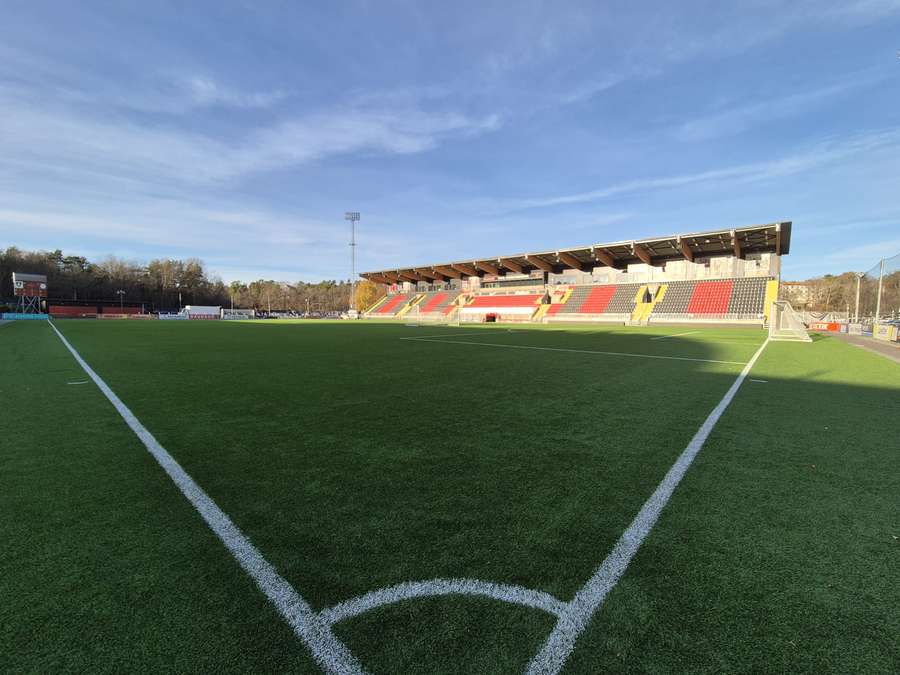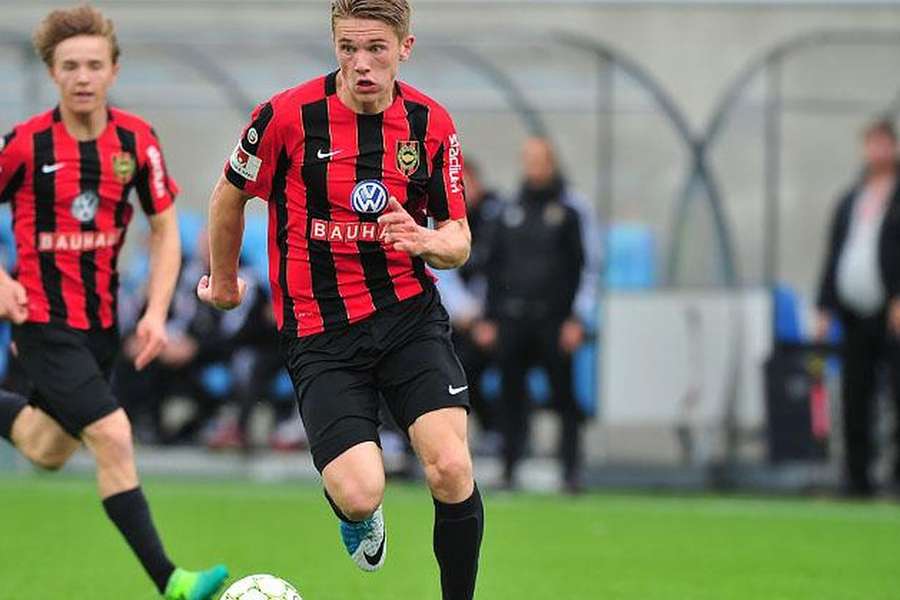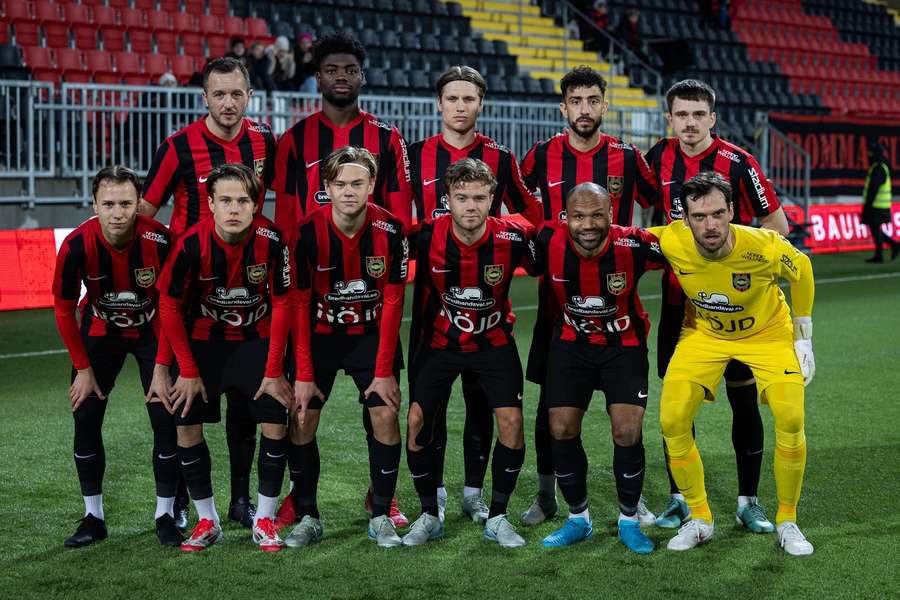Not many fans will have heard of Brommapojkarna. This modest club from the outskirts of Stockholm, which will be taking part in the Allsvenskan, Sweden's top league, for the 10th time, is actually one of the best - perhaps the best - football academies in Sweden. Albin Ekdal, John Guidetti, Ludwig Augustinsson, Dejan Kulusevski, Lucas Bergvall and Viktor Gyökeres all passed through here before finding success in European football.
In Sweden's last squad for official matches in November, eight players had worn the red and black jersey. And the number increases if we look at the youth teams, in a true testament to the competence of a revolutionary method in Swedish football.
That's why Flashscore went to discover the secret of a club that has to co-exist in the Swedish capital's ecosystem with AIK, Hammarby and Djurgarden, much better-known and more established clubs, both inside and outside Sweden.
The small park that leads to the modest Grimsta IP, with a capacity for 4,000 people, sets the tone for the family atmosphere among the boys from Bromma (the literal translation for Brommapojkarna). It's here that more than 4,300 players put on the red and black jersey to play for 267 teams at different levels, from five-year-olds to the two senior men's and women's squads.

"We often call ourselves the biggest football club in Europe," explains Peter Appelquist, who welcomed Flashscore's report in a room with a wide view of the pitch that hosts Allsvenskan matches.
"Swedish football is organised differently from other countries and Stockholm is different too. The 20 biggest clubs in terms of training are all here, we're at the top, Hammarby has 500 fewer players, Sollentuna and Täby are also big.
"But for example, in Gothenburg the clubs have one team per age group, we have 25 men's teams and eight women's teams for children aged eight, playing in competitive leagues."
The training model was an innovative project launched 40 years ago and is well structured: "When they're five, six and seven years old they just play for fun, their parents are coaches, all they have to worry about is playing. We have over a thousand players here this year.
"That's the majority of our club, 90 percent, kids playing. Then we have academies for boys and girls. It's an education to become footballers, to gain competitive skills, with excellent coaches. The best coaches want to come here.
"This year, our under-17s won the championship and will be playing in the (UEFA) Youth League next year, which will be their debut. We'll have two teams playing in the Allsvenskan next year in the U17s, because our B team has moved up.
"In the Under-16s we'll have three teams in the Allsvenskan. In the U19s we have one team in the first division and one in the second. We have a lot of players playing competitive games."

Having so many players is obviously an advantage. However, it also helps to have quality coaches, with the likes of Olof Mellberg and former national coach Tommy Söderberg having come through Bromma's coaching ranks.
"The secret? We have a lot of players playing against the best teams in Sweden. And then we have excellent coaches who started in our academy and worked their way up. Our first-team coaches, Ulf Kristiansson and Frederik Landén, have come a long way in our academy.
"Olof Melberg was an excellent player, he started here coaching his son's team and then worked his way up to the first team. Stefan Billborn from Gothenburg also came through here. Tommy Soderberg, who coached the national team at the beginning of the 21st century. I could go on.
"It's a great environment for players to grow up in and that's why the best want to come to us. Then the reputation creates a winning mentality, anyone who comes here knows it's going to be good. In the first three divisions in Sweden we have 60 professional players. We're creating a lot of them," he said.
Barcelona produces top-quality midfielders, Sporting is known for its endless list of top-class centre-halves. Does Brommapojkarna have a style of player?
"It's about having technical quality. That's what we focus on in the early years. In our academy we focus a lot on dribbling, passing, shooting. Always with the ball. More individual, working with the ball. That's the main focus. Then we introduce the technical parts.
"They may not be the tallest, the strongest physically, but they're good technically. We've had John Guidetti, a great striker, Dejan Kulusevski, Lucas Bergavall, an intelligent midfielder, Ludwig Augustinsson, a full-back, Karl Starfelt, a centre-back who isn't very technically gifted but is good defensively, Daniel Svensson, who used to be a full-back and is now a midfielder at Nordsjaelland.
"We have a creative 10 in our team. And then there are also great goalkeepers, Davor Blazevic, Kristoffer Nordfeldt, a substitute for Sweden. We had a game with Gothenburg last spring in which both goalkeepers (Filip Sidklev and Elis Bishesari) played for the U19 team. Now they're both starters in the Allsvenskan," he said.
Despite the good results in training, the senior team is always important to the fans. Brommapojkarna's life hasn't been easy, with many appearances in the lower echelons of Swedish football. However, going into their 10th appearance in the Allsvenskan, the club is coming off the back of a 10th place finish, their best ever. A sign that things are changing.
"Now we're in the best position ever. Ten years ago we didn't get much for the players, we had a lot of discussions about getting money and we were on our own fighting against bigger clubs, now it's FIFA that takes care of it because the solidarity mechanism is automatic.
"Nowadays we receive a lot of money, almost like interest, from all transfers. Augustinsson went to Sevilla, we got a few euros from Kulusevski, from Starfelt, all automatically. We got a percentage of Bergvall's transfer to Tottenham and it was the club's best ever financial result.
"We passed 10 million euros for the first time in an annual balance sheet. We're on a different level. Ten years ago we were in the Allsvenskan, but we had no money, we had to use players who weren't ready and we went down. Now we can buy players who will help us stay and adjust the timing of launching youngsters.
"We're growing steadily and investing in the team to maintain it and start looking to the future and thinking about qualifying for Europe. We're not rushing it, but we realise it's possible in the near future. We can also invest in courses for our coaches and improve training even further," he said.
The click of change? The departure of Viktor Gyökeres to Brighton in 2018 for one million euros.
"We've always been very well known in training. A lot of clubs want to be linked with us, to make sure they pick our best players. We've had a lot of youngsters invited to train at top clubs. One of our youth scouts has worked at Manchester United for 20 years and is analysing for them too.
"Now we've been able to get more. When Viktor Gyökeres went to Brighton we realised the paradigm shift, that we could get paid for players. And that was confirmed with Jack Lahne (two million euros to Amiens the following year)," he concluded.
Stay tuned, because Bromma's boys look set to make a name for themselves in increasing numbers in European football.
As for domestic matters, Brommapojkarna begin the 2025 Allsvenskan season tomorrow with an away trip to Hacken at 17:30 CET, following the season curtain raiser, Djurgarden versus reigning champions Malmo.
Follow all the action of the 2025 Allsvenskan on Flashscore.


